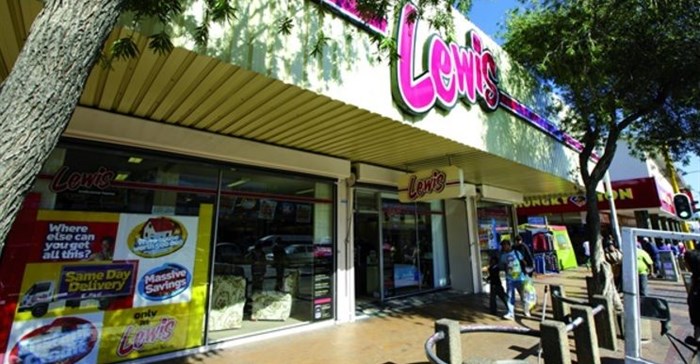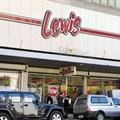Struggling furniture and household goods retailer Lewis Group will take advantage of poor sentiment for its stock by embarking on a share buyback exercise.

Image credit: Lewis Group
Speaking after the release of results for the year to March on Wednesday, CEO Johan Enslin said the company was only lightly geared and that Lewis' shares were trading at a substantial discount to net asset value (NAV).
Lewis, which struggled to maintain operating margins in the past financial year, has slashed its gearing from 25.5% to just 2.9%.
An investor presentation document shows Lewis aims to have no gearing in the financial year ahead although the medium-term target still pencils in gearing of less than 25%. The company's NAV was reflected at R61.33 per share, meaning the share price is offering a 45% discount.
Mark Hodgson, an analyst at Avior Capital Markets, said retail stocks traditionally traded at substantial premiums to NAV, but added that Lewis was not a typical retailer with its strong financial services offering.
"Lewis can, at this stage, only buy back 3% of its issued shares. But directors could ask permission to increase this at the annual meeting in August."
Lewis reported revenue down 3.3% at R5.6bn with Enslin saying that the company's customer base was adversely affected by the affordability assessment regulations, high levels of unemployment and the protracted drought hurting the rural economy. Merchandise sales, which increased slightly in the first half, slowed in the second half, ending the financial year 2% lower. The company's like-for-like merchandise sales dropped 9%.
The gross profit margin expanded by 360 basis points to 41.6%, thanks to more competitive procurement of locally sourced product, tight stock control and an increased sales contribution from the higher margin furniture category.
Furniture accounted for 56.3% of total sales compared with 54.4% the previous year. But Lewis's operating margin was down to 10% from 14%. Margins at Lewis Stores fell from 15.3% to 10.3%, while Best Home and Electric crimped from 18% to 15.3%.
There was some good news in that Beares moved from an unprofitable position to operate off a margin of 4.1%. Enslin hoped that the margin would continue to show improvement in the next few years.
Overall, Lewis - according to its investor presentation - is targeting a medium-term operating margin of 12%-15%.
Enslin confirmed that there would probably be store closures, especially in rural areas, in the next financial year.
"We won't close stores but look at leases when they come up for renewal. About 150 leases come up for renewal this year, and about 15 are considered marginal. If trading does not improve we will close them."
Lewis paid a final dividend of 100c, bring the total payout for the year to 200c. This is half of the payout of 517c per share made the previous year.
Enslin stressed that the company remained strongly cash generative with cash generated from operations coming in at more than R1.1bn. Cash generated from operating and investing activities was used to repay borrowings of R1bn and to fund dividend payments of R357m, he said.
At financial year-end Lewis's cash and cash equivalents topped R789m.
Looking ahead, Enslin said he believed trading conditions would not improve in the short term. Management would remain focused on tight expense control, improving collections productivity, driving sales growth and sourcing innovative merchandise ranges that appealed to the company's target market.
Source: Business Day





































